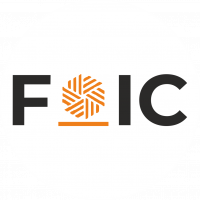Fractional Real Estate Investment with FOIC: A Modern Approach to Property Ownership

Strong 8k brings an ultra-HD IPTV experience to your living room and your pocket.
The real estate market has long been a cornerstone of wealth creation, offering investors the potential for steady cash flow, capital appreciation, and portfolio diversification. However, the high barriers to entry—such as substantial capital requirements, management responsibilities, and market expertise—have traditionally made real estate investment inaccessible to many. Enter Fractional Ownership Investment Community (FOIC), a revolutionary model that democratizes real estate investment by allowing individuals to own a fraction of a property. This article explores the concept of fractional real estate investment with FOICs, its benefits, challenges, and why it’s gaining traction among modern investors.
What is Fractional Real Estate Investment?
Fractional real estate investment involves pooling resources with other investors to collectively purchase a property. Instead of buying an entire property, investors own a fraction or share of the asset, proportional to their investment. FOIC facilitate this process by managing the acquisition, operation, and eventual sale of the property while distributing profits (or losses) among the fractional owners.
This model is particularly appealing for high-value properties, such as luxury vacation homes, commercial real estate, or prime residential developments, which would otherwise be out of reach for individual investors.
How FOIC Work
Property Selection: FOIC identifies and acquires high-potential properties, often leveraging their expertise to choose assets with strong growth prospects in desirable locations.
Fractional Ownership: Investors purchase shares in the property, typically through a digital platform. Each share represents a percentage of ownership and entitles the investor to a proportional share of rental income and capital gains.
Professional Management: FOICs handle all aspects of property management, including maintenance, tenant relations, and legal compliance. This eliminates the burden of day-to-day responsibilities for individual investors.
Income Distribution: Rental income is distributed to fractional owners after deducting management fees and operational expenses.
Exit Strategy: FOICs often provide liquidity options, allowing investors to sell their shares on a secondary market or participate in the sale of the property when it’s eventually liquidated.
Benefits of Fractional Real Estate Investment with FOICs
Lower Capital Requirements: Fractional ownership allows investors to enter the real estate market with significantly lower capital compared to traditional property purchases.
Diversification: Investors can spread their capital across multiple properties and locations, reducing risk and enhancing portfolio diversification.
Passive Income: Fractional owners earn a share of rental income without the hassle of managing the property.
Access to Premium Properties: FOICs enable investors to own a stake in high-value assets that would otherwise be unaffordable.
Professional Management: FOICs bring expertise in property selection, management, and optimization, ensuring the asset performs well.
Liquidity Options: Unlike traditional real estate, fractional ownership often provides more flexible exit strategies, such as selling shares on a secondary market.
Challenges and Considerations
While fractional real estate investment with FOIC offers numerous advantages, it’s not without its challenges:
Limited Control: Fractional owners have little to no say in day-to-day decisions, as the FOIC manages the property.
Fees and Expenses: Management fees, maintenance costs, and other expenses can eat into returns, so it’s important to understand the fee structure before investing.
Market Risk: Like any real estate investment, fractional ownership is subject to market fluctuations, which can impact property values and rental income.
Liquidity Constraints: While FOICs may offer liquidity options, selling fractional shares can still be more challenging than selling traditional stocks or bonds.
Regulatory Environment: The fractional ownership space is still evolving, and regulatory frameworks may vary by jurisdiction. Investors should ensure the FOIC operates in compliance with local laws.
Why FOIC Are Gaining Popularity
The rise of FOIC can be attributed to several factors:
Technological Advancements: Digital platforms have made it easier for investors to browse, purchase, and manage fractional shares in real estate.
Changing Investor Preferences: Millennials and Gen Z investors, in particular, are drawn to alternative investment models that offer flexibility, accessibility, and diversification.
Economic Trends: With rising property prices and interest rates, fractional ownership provides a viable entry point for investors who might otherwise be priced out of the market.
Globalization: FOIC often offer access to international real estate markets, allowing investors to tap into growth opportunities worldwide.
Conclusion
Fractional real estate investment with FOIC represents a paradigm shift in property ownership, making it more accessible, flexible, and scalable for a broader range of investors. By lowering barriers to entry and providing professional management, FOICs empower individuals to participate in the real estate market and build wealth over time.
However, as with any investment, it’s crucial to conduct thorough due diligence, understand the risks, and align fractional ownership with your overall financial goals. For those looking to diversify their portfolios and explore innovative investment opportunities, fractional real estate investment with FOICs is a compelling option worth considering.
Disclaimer: This article is for informational purposes only and does not constitute financial or investment advice. Always consult with a qualified financial advisor before making investment decisions.
Note: IndiBlogHub features both user-submitted and editorial content. We do not verify third-party contributions. Read our Disclaimer and Privacy Policyfor details.





